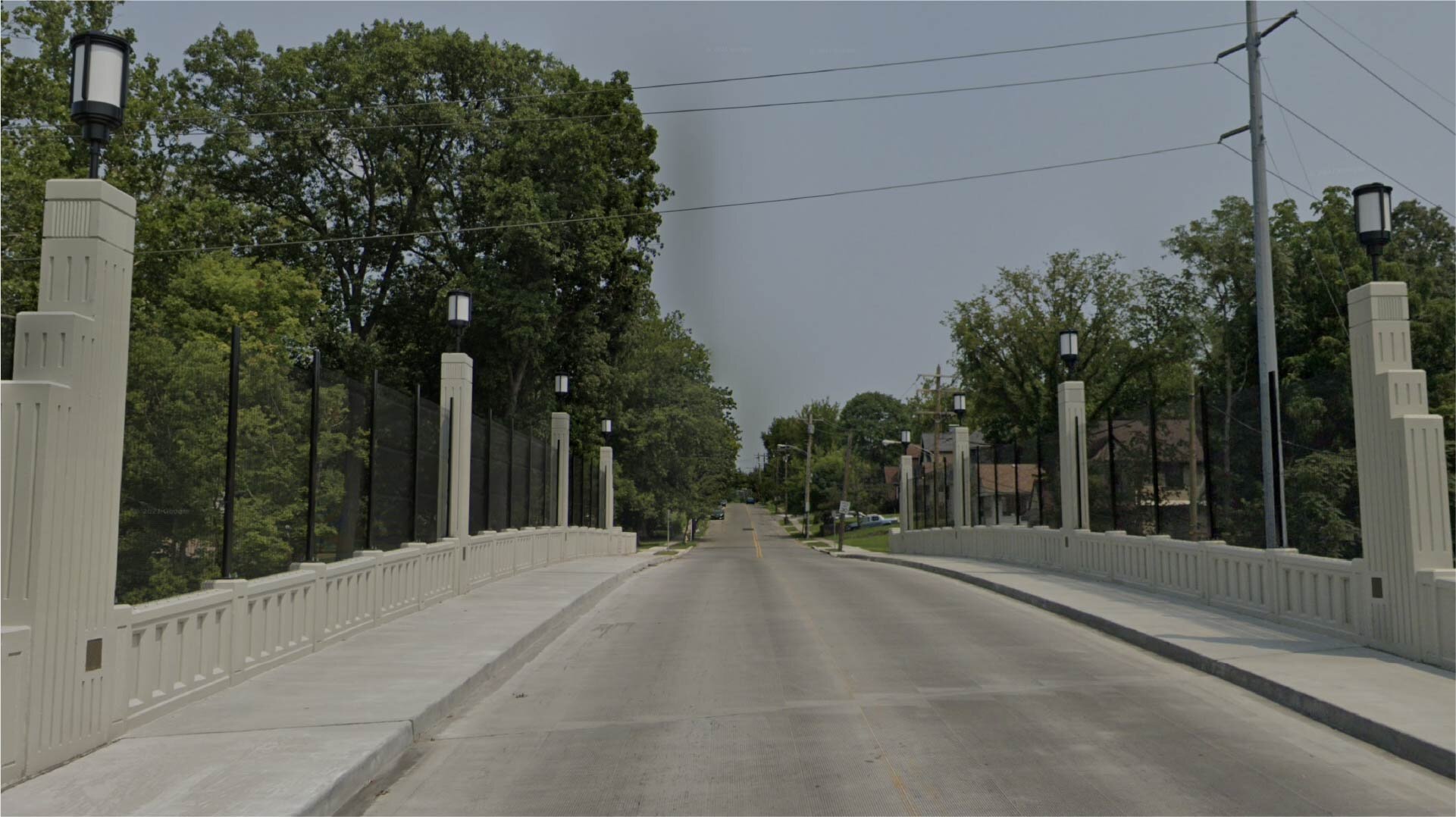
ELDERS SERIES
Jeane & Bill Goings
Jeane and Bill Goings came to Kennedy Heights because of a connection with the Tilford family. They were looking for a place to raise their family in a family oriented, safe environment where they could get to know their neighbors. KH had the feel of a country setting in 1958.
Jeane remembers that some residents were friendly, welcoming them to the community. They received a similar response from the Silverton police and merchants. They moved on Hedge & Kirkup where all of the residents were white. Professional people began moving into Kennedy Heights.
Soon after their arrival, both white and black realtors were trying to get whites to sell and blacks to buy houses. Jeane remembers answering the door numerous times and talking with a realtor while she was taking care of her firstborn child. One realtor, upon seeing her, said, “Oh, you’re house has already been sold.”
As anxiety and fear began to spread through the neighborhood, a group began meeting in homes and at a Lutheran church in Silverton. (It is now the Fellowship of Jesus Christ.) They called themselves the KH Civic Association. They were not thinking of establishing a community council. They were focused on having safe homes and good schools for their children. Later, the KH Presbyterian Church was willing to welcome blacks and get involved.
A turning point came in 1959, when there was a shooting in the neighborhood at 3946 Standish. No one knew who this person was. Junior Andrews was involved in the numbers racket in Kentucky. They began working on zoning. George Rowe, an engineer with the city who lived on Kirkup, initiated the upgrading of many homes,making the area more attractive and safer.
Polly and Phil Reading, Joe and Betty Crawford, D.D. and Bob Starr, Bea and George Rowe were involved in working to calm fears by connecting with people, discussing their goals and taking actions that would keep the neighborhood stable. Bill served as the President of KH Community Council. He also was very active in the KH Presbyterian Church ministry.
Jeane thought perhaps the community was going to become segregated but, instead, it is integrated and includes those with different sexual orientations, too.She likes how accessible and convenient it is to other parts of the city. She stated it feels like everyone is your brother, we’re in this together. She is aware of how many children have grown up and stay in the neighborhood. They have a daughter, Jan, who is active with the KH Development Corporation (KHDC).
Thanks to the GI bill, Bill was able to obtain a pharmacy degree. He had three pharmacies/apothecaries, in the West End, Walnut Hills and Burnet Ave. He worked for Super-X for 25 years and did some work for the Veteran’s Hospital. His career totaled 50 years. Jeane’s career was in social work, retiring from the Children’s Home, a position she thoroughly enjoyed.
Jeane said both of them were taught that, if you are able, give back to your community. Thus, getting involved with the neighborhood was a natural thing for them to do; they communicated that same attitude to their children. Their children have lived in many countries. Growing up they didn’t realize the experience they had in Kennedy Heights was different from the norm; they always had a diverse group of friends.
Jennifer, their daughter, called to check on her parents while the interview took place. She said she felt like she was raised by a village, she liked that she was known by the community, could walk to school, participate in Ken-Sil sports and Girl Scout troops. She is proud of her home and has fond memories of growing up in KH.
Bill received the Cincinnati Pharmaceutical Award and the YWCA Racial Justice Award. The Melrose YMCA recognized him for his considerable efforts in the Walnut Hills area. He was given an American Legion award for his leadership in establishing the Cincinnati African-American American Legion Post. The city of Cincinnati presented him with a resolution for his many civic and community associations, including the KH Community Council. Jeane was given the KH Arts Center Volunteer Award in 2013. She was chosen as an Enquirer Woman of the Year in 2008 . She received the Glorifying the Lions Urban League award, and the YWCA Racial Justice Award, among other recognitions.
Bill and Jeane feel the KH Arts Center, the Sap Run event, the Green Corner gardens, the PR pool and recreation center are all part of making the neighborhood an attractive place to live. They enjoyed attending the 50th anniversary program of KH Community Council (KHCC) last June, 2013. They are glad that churches care about and are involved in the neighborhood.
What are Jeane’s suggestions for someone moving to KH? It is a community where you have a say, you are listened to and can effect changes. It is a warm, caring place where we take care of those who are different from us, citing the Margaret Geier home as an example, and we don’t put people out of the community. She cited a situation where a woman now lives alone after her husband died and the neighbors come to take care of her during the week. “Where else do you know a neighborhood that cares to that extent?”
Her hope is that KH continues to grow, that there is more diversity with creative decision making, and that people continue to work for a progressive community.
—
Interviewed by Christine Schumacher and Holly Beckemeyer
April 7, 2014


